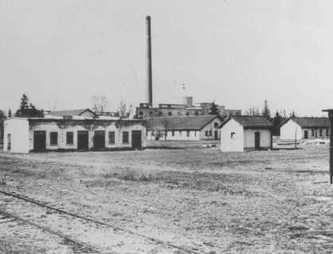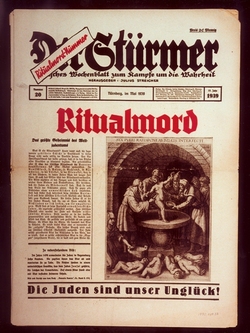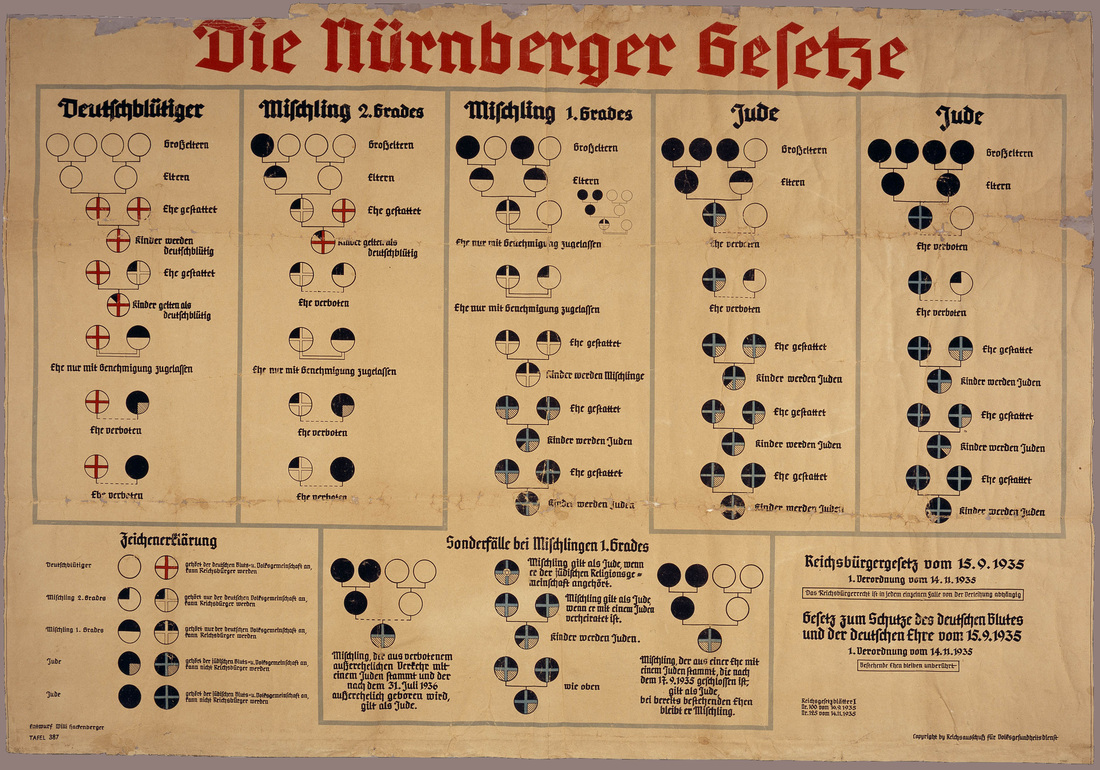Germany 1933-1939: Mounting Human Rights Violations
|
As the concentration camp system took root, political dissenters and civilian "undesirables" (Jews, gypsies, blacks, etc.) were stripped of rights and later sent to camps to be used as slaves or be executed - this was considered a major crime against humanity.
Dachau Concentration Camp, 1933
(US Holocaust Memorial Museum) |
Der Stürmer (The Stormtrooper), an antisemitic newspaper edited by IMT defendant Julius Streicher
(US Holocaust Memorial Museum) |
The Nuremberg Laws
|
Jewish lineage chart, used to determine who could or could not be considered a citizen
(Rice University) |
The Nuremberg laws officially and severely limited Jewish rights and citizenship; Nuremberg Trials defendants Wilhelm Frick and Hermann Göring were influential in the writing and passing of the laws. The limitation of certain groups' rights was considered a crime against humanity.
"Marriages between Jews and subjects of the state of German or related blood are forbidden. Marriages nevertheless concluded are invalid, even if concluded abroad to circumvent this law." - Article 1, Law for the Protection of German Blood and German Honor
|
Expanding the Concentration Camp System
"Whoever in the future raises a hand against a representative of the National Socialist movement or of the State must know that he will lose his life in a very short while." - IMT Defendant Hermann Göring |
Camps were built throughout Nazi territories and used for forced labor and extermination of Jews, racial minorities, and political prisoners. These severe violations of human rights were the most prominent crime against humanity tried at the Nuremberg trials.
|
Map of major concentration camps. Click on red location symbols for camp name and associated death toll.


